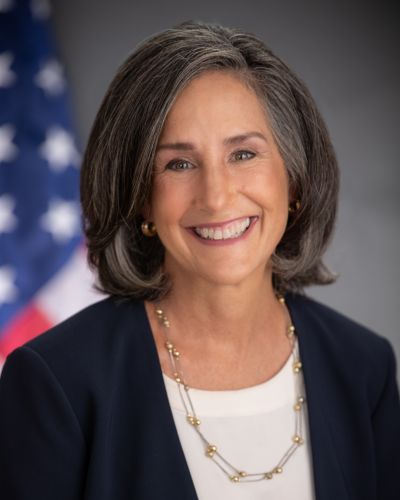BETHESDA, Md. (BRAIN) — A federal judge reinstated three Consumer Product Safety Commissioners fired in May by the Trump administration after they objected to staff cuts and sued nearly two weeks later for unlawful dismissal.
Public Citizen filed the civil lawsuit on behalf of Mary T. Boyle, Richard Trumka Jr., and Alexander Hoehn-Saric. The suit said that under the Consumer Product Safety Act, commissioners can be removed by the President before the end of their terms only "for neglect of duty or malfeasance in office but for no other cause" as stated by Congress.
"Today's opinion reaffirms that the President is not above the law," said Nick Sansone, Public Citizen Litigation Group lead counsel, on June 13. "Congress structured the CPSC as an independent agency so that the safety of American consumers wouldn't be subject to political whims and industry pressure. The court's ruling upholds that sound legislative choice. We are thrilled that our clients can get back to work keeping us safe from hazardous products."
Judge Matthew J. Maddox ruled that the Democratic commissioners "suffered irreparable harm" by not being able to perform their roles for the past month. During that time, the remaining two commissioners, Acting Chairman Peter A. Feldman and Douglas Dziak, voted to withdraw the previously approved by a 3-2 vote the e-bike and lithium-ion battery testing standards proposal from public comment.

Other CPSC actions performed during the trio's absence included the 2026 budget request to Congress, which is calling for a restructuring of the agency, reducing funding by 10.5%, and staffing by 14%.
"Plaintiffs are unlawfully barred from participating in ongoing, consequential decisions of the CPSC that will substantially impact commission operations and its work on behalf of the public," Maddox wrote. "Specifically, plaintiffs are prevented from voting on Acting Chairman Feldman's proposed plan for reductions in force at the CPSC, which plaintiffs believe will aggravate existing understaffing issues and compromise the commission's ability to function. ...
"In the time that the CPSC has been operating without plaintiffs' participation, the commission has stalled the progress of certain product-safety rules that plaintiffs believe are necessary to protect consumers, canceled budgetary and planning meetings that plaintiffs view as important, and voted to withdraw a Notice of Proposed Rulemaking for safety standards that plaintiffs had supported. ..."
Under the safety act, the CPSC has five commissioners nominated by the President and confirmed by the Senate to serve staggered, seven-year terms and act independently in the name of public safety. Each of the fired commissioners were nominated by former President Joe Biden and confirmed by the Senate.
On May 7, the commission was told the Trump administration wanted some commissioners' staff employees fired, but Trumka said he wouldn't allow it. The next day, according to Trumka, Department of Government Efficiency representatives visited the CPSC. After Feldman, a Republican, emailed the other four seeking approval to bringtwo DOGE members into commission offices, the three Democratic members declined and voted to block the approval. Fellow Republican Dziak voted with Feldman. That same day, the terminations were announced through emails.

The stage was set for the firings on April 30 when the commission voted 3-2 to approve the e-bike and lithium-ion battery testing standards proposal and advance it to the public comment period required under the Notice of Public Rulemaking guidelines.
Before the vote, a motion by Feldman and Dziak was presented to submit the testing proposal to the Office of Information and Regulatory Affairs (OIRA) — part of the Office of Management and Budget (OMB) — that President Trump says is now required because of his executive order. The Democratic members voted against it, citing the CPSC's authority to act independently. With the proposal approved, it was supposed to be published in the Federal Register on May 16 for public comment.
Withdrawing the proposed rule from publication in the Federal Register doesn't commit the commission to any specific future action, according to the CPSC, so, the commission can decide in the future whether to publish it in the Federal Register or send it first to OIRA for review.


